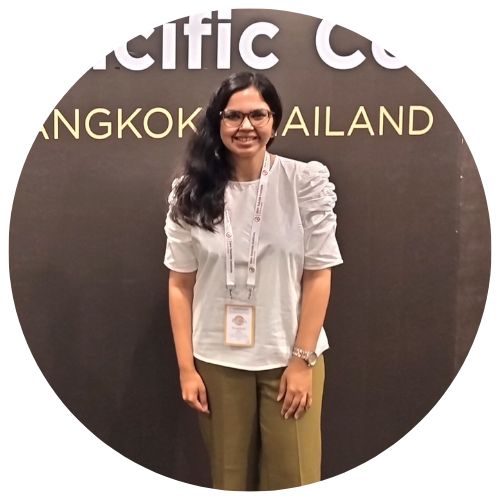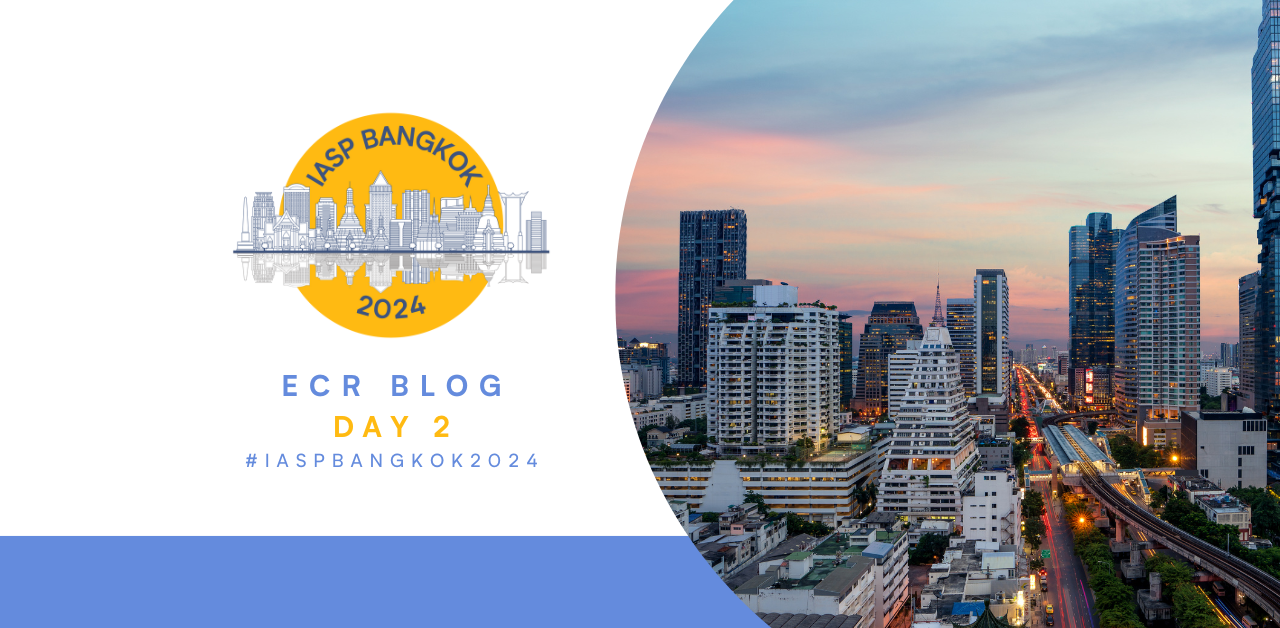My excitement for the day ahead, which was already high, soared as I crossed the bustling lobby and stepped into the packed ballroom for the plenary session. Owing to the Early Career Researcher pre-conference workshop, I could spot some familiar faces to sit next to. All three speakers ensured a stimulating start to the day.
In Professor Paul Yip’s talk about an online suicide prevention program, I was intrigued by his description of the single-session therapy which is carried out with help-seeking youth. I’m usually thinking about long-term therapeutic interventions in my work with clients, and it made me reflect on the usefulness of other briefer approaches to providing care.
I was already familiar with Dr Soumitra Pathare’s intensive work on media reporting about suicides in India. Hence, learning about the project’s results and recent endeavours was of great interest to me.
During Dr Pongkasem Khaimook’s presentation, it struck me as wonderful that Thailand’s National Strategy for Suicide Prevention has the vision to build a more empathetic society. I thought it beautifully sums up the positive intent.
After refuelling myself with coffee, I attended one of the oral paper sessions where quite a lot of data on suicide helplines were presented. Ever since the Covid pandemic, helplines have really stepped forward and are trying to meet the growing demands for emotional support in a time-sensitive matter. Hearing some of these success stories from Malaysia, Bangladesh and the Philippines was a really uplifting experience, and of course, listening to peers as always, is an incredibly helpful academic exercise. As I am currently undergoing training as a couples therapist, I found it significant that relationship issues were a major reason for distressed calls to helplines. It made me think that we need to be having more conversations about relational health.
I was really looking forward to the next session, which was by the representatives of the IASP Task Force into Suicide Prevention in Women and Girls. My PhD study aims to understand the psychosocial factors that predict self-harm behaviours among female survivors of domestic violence. Hence, the issue of gendered vulnerabilities and the need to take action, keeping this intersection between broader social factors and individual experiences, is one I’m very passionate about. The session was all that I had hoped for. Dr. Lakshmi Vijaykumar’s presentation regarding her work in India on pesticide-related suicides brought about an interesting perspective of suicide prevention work leading to other really important benefits for the community.
A special opportunity arrived along with lunch as I eagerly accepted the invite to lunch with my ECR colleagues. Over a scrumptious buffet, we tried to get to know each other, and it was a comforting feeling to be a part of a wider community.
Being extremely full from lunch may have been a determining factor for my extreme case of indecisiveness regarding the 3 parallel symposiums. I ended up attending one presentation for each of the three! In hindsight, it was a good idea, and I got a feel of a wide range of topics, including community programs, brief interventions, as well as tertiary education in suicidology in a span of only one session!
My day ended with another stimulating special panel lecture on surveillance data for suicides. Professor Rakhi Dandona’s talk left me with the thought that as suicide researchers, we are not unique (or alone), and we need to learn from our colleagues studying other health conditions to ensure that we’re not reinventing the wheel!
I finally called it a day with my mind buzzing with snippets from all the incredible conversations.
Written by:





